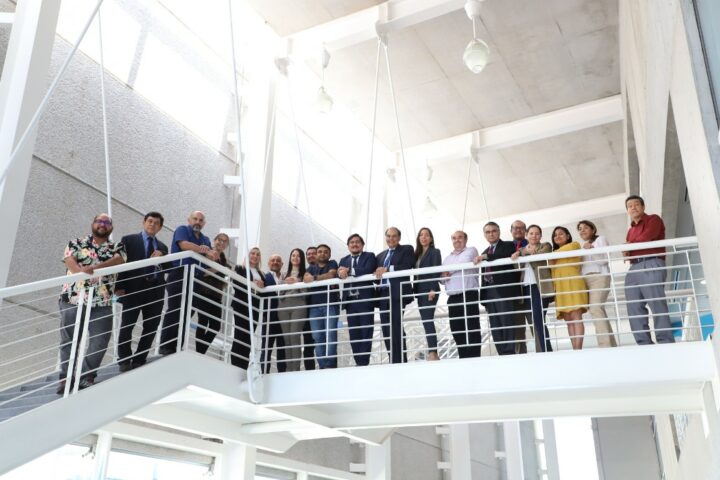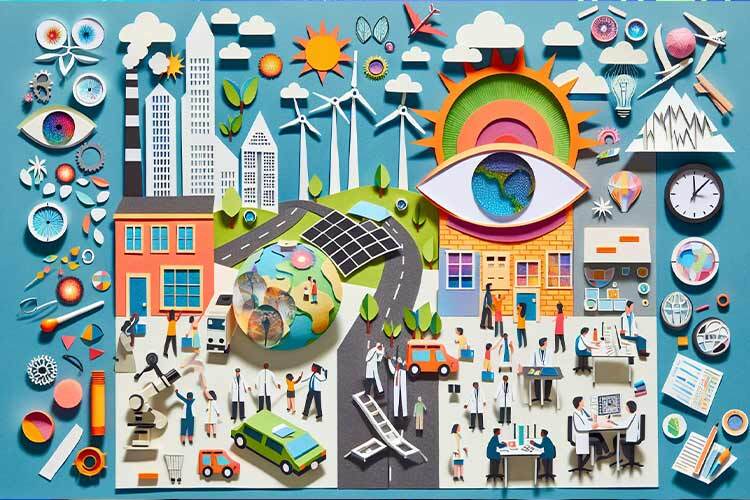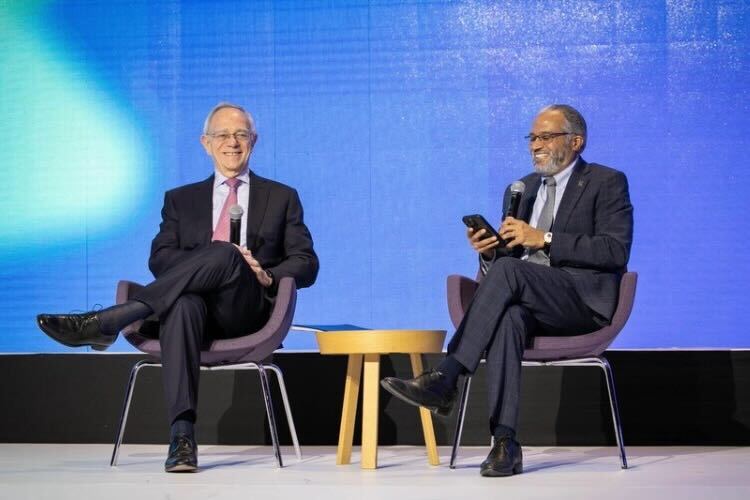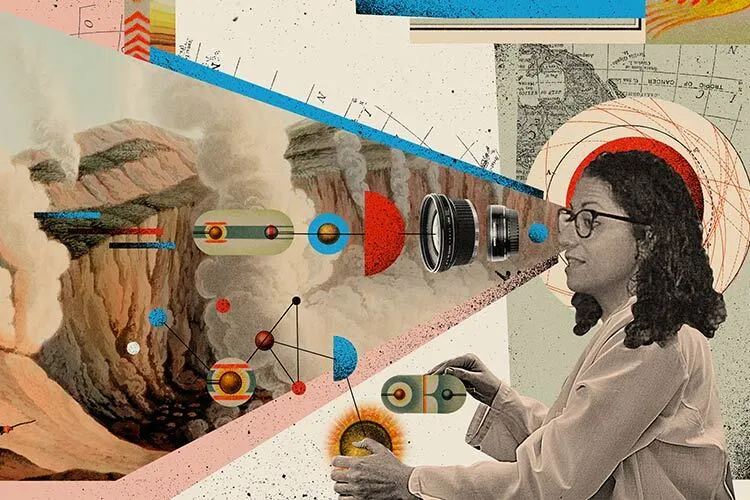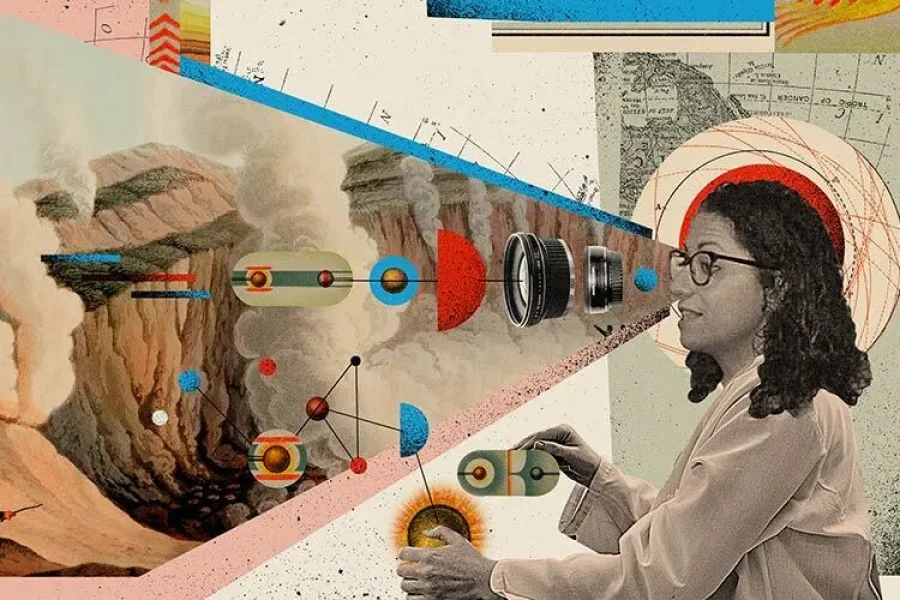By: Rita Quetziquel Fuentes Aguilar, leader of the Enabling Technologies for the Development of Advanced Materials Unit
Over the years, new challenges, needs, and opportunities have arisen to keep pace with the world’s technological advances.
Addressing climate change is among the most pressing and urgent challenges facing humanity in this century.
Climate change is undoubtedly one of the greatest threats to the survival of humanity. No nation is immune to its dangerous consequences, such as rising temperatures, greenhouse gas emissions, and waste, which severely affect ecosystems and primary activities such as agriculture and human health, among many other things.
In view of this situation, it’s imperative that we adopt urgent measures. To this end, sustainable development has become the way to prevent and combat climate change and its effects.
Some of the measures that have been taken in recent years include educating people to raise awareness on the subject, as well as strengthening the so-called “pillars” of sustainable development: the economy, society, and the environment, by searching for new green production and manufacturing models to achieve a production model based on sustainable manufacturing.
In order to strengthen these areas, Tecnológico de Monterrey has therefore created the Institute of Advanced Materials for Sustainable Manufacturing, an interdisciplinary space whose goal is to apply disruptive technologies, innovative processes, and state-of-the-art science to different productive industries.
Through scientific and technological research, this new Institute aims to develop new sustainable materials and innovative eco-friendly production processes with an interdisciplinary approach, i.e., integrating and applying technologies ranging from Nanotechnology and Biotechnology to Cognitive Sciences and Disruptive Information Technologies.
The Institute of Advanced Materials for Sustainable Manufacturing is divided into four multidisciplinary research units, made up of experts in different fields working together on disruptive projects. These units are: 1) Competitive Intelligence and Public Policies for Sustainable Manufacturing, 2) Accelerated Materials Development, 3) Manufacturing Processes for Advanced Materials, and 4) Enabling Technologies for the Development of Advanced Materials.
Each unit focuses on a key topic, together sharing Tecnológico de Monterrey’s 2025 vision of promoting research as a source of opportunities and innovative solutions for the economic, social, and environmental development of our country.
To that effect, the Enabling Technologies for the Development of Advanced Materials Unit for the Western Region, on Guadalajara Campus, seeks to develop technological platforms to discover, create, and develop materials and manufacturing processes in an accelerated manner through research into materials and their relationship to disruptive technologies with a specific focus on design, manufacturing, testing, and automation.
This is a strategy based on using science and transformation processes to develop advanced materials and apply these in conjunction with exponential technologies, as well as manufacturing with less traditional methods.
In today’s world, manufacturing a product using traditional manufacturing technology wastes 90% of raw materials, while using rapid prototyping technologies only wastes 4% of production materials. Achieving a reduction in losses from 90% to 4% reduces raw material costs, which means a reduction in waste.
Advanced materials offer several advantages, such as stiffness-to-weight ratio, better shock absorption, low thermal conductivity, and lower density. This has a direct impact on the energy costs that apply to industry, which can generate a sustainable impact when combined with artificial intelligence, robotics, and automation by reducing raw material waste, maximizing resource utilization, and developing new applications with less of a long-term negative impact on the environment.
In order to support both small producers and global industries, the Unit has set out to begin its research by incorporating some of the following technologies into its technological platforms: Artificial Intelligence; Metaheuristic Optimization; Augmented, Mixed, and Virtual Reality; Robotics, Digital Twins, Cyber-Physical Systems, and Intelligent Automation.
Made up of experts from the fields of automatic control, metamaterials, artificial intelligence, mechanisms, virtual reality, and computer vision, this Unit creates a space for all research on advanced materials and their relationship to disruptive technologies through scientific research and their application to agriculture, automotive, and biomedical areas.
Tackling climate change involves collaborative work between academia, the public sector, the private sector, and civil society. (Rita Quetziquel Fuentes Aguilar, leader of the Enabling Technologies for the Development of Advanced Materials Unit)
